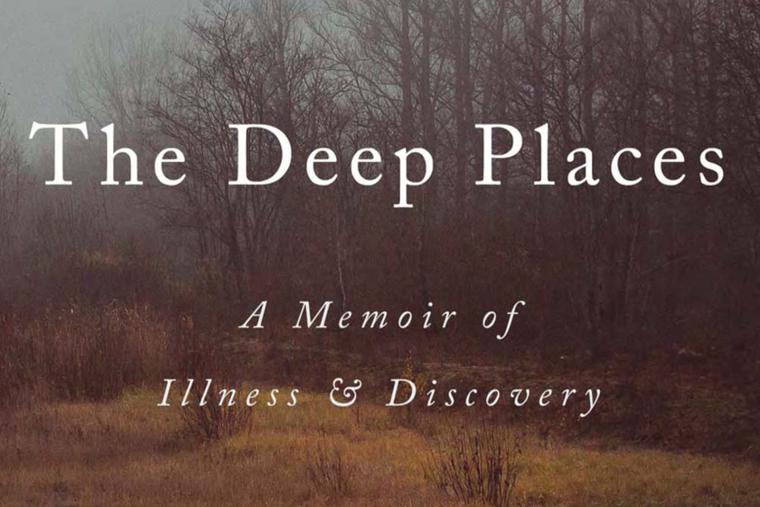Christ Has Redeemed Our Suffering
A personal review of ‘The Deep Places’ by Ross Douthat

Harrowing. As a Lyme disease survivor — as one who lived with chronic Lyme for only 10 months — that is how I would describe Ross Douthat’s book The Deep Places: A Memoir of Illness and Discovery. My own sleepless nights, in what Douthat describes as the “prairie of pain” (taken by him from the off-Broadway play “Heroes of the Fourth Turning”) were brought back to my memory. My drawer, similar to Douthat’s, where I kept all the bottles of prescription and herbal medications, is beside my bed filled with supplements I still take. I take them not because I have symptoms, but because I am changed by having lived through this disease. Going through a long period of suffering, with no end in sight, changes a person in a way that is hard to explain.
I call Douthat’s experience harrowing, because he lived with his disease undiagnosed and untreated from months on end. He was not believed by his doctors when they could not identify his illness. They put all their trust in blood tests that were too dependent on Lyme disease being predictable, which it is not. I was close to having his experience. When I had so much ankle pain — a boggy, stinging, burning feeling — that I could not walk, I went to the local urgent care. Perhaps I had a sprain or something, but I had an unidentifiable swollen bug bite on the same ankle. I figured it was a spider bite. The practitioners at the urgent care ignored the bite, tested me for gout, gave me an X-ray and sent me home with a prescription for prednisone and crutches.
Two days later my husband drove me to my appointment with another medical practitioner. When I came in on crutches, she took one look at me and handed me a symptom-checker form for Lyme disease — a form I filled out monthly until I had recovered. She had had her own journey with chronic Lyme, and could see immediately that I was not dealing with just a sprain. Under her care, I slowly got better.
Seeing a practitioner who was willing to fight Lyme disease to the end was what brought me back to normal life. But then in many ways it is not life as it was before my illness.
Douthat took much longer to find practitioners who could even appropriately diagnose his condition and find treatments that helped him to be able to function without pain (most of the time). He is still dealing with symptoms, six years later. He goes into detail revealing problems with the medical industry and how it deals with chronic, elusive illnesses. He talks about how people in real pain are pointed to psychologists instead of being treated for their real ailments. He talks about how his Catholic faith helped him through his dark years of suffering. He talks about how he is also changed by his experience.
How does going through a chronic illness change a person? It makes one view one’s own life with gratitude and to have more true sympathy for those who suffer. To know what it is like to not be able to sleep because of pain that does not respond to painkillers — pain that will not go away until the long treatment is complete — makes one love the suffering human person so much more. And for the person of faith, it brings one closer to our suffering Savior. I do not think I would have had the courage to persevere through my Lyme disease pain, which was more intense than natural childbirth and continued for weeks on end, had I not been spiritually clinging to Jesus on the Cross. I was there with him, my whole being racked with pain. And he was with me through the slow recovery and the setbacks.
Right before my illness I acquired a beautiful little antique secretary desk. We set it up in our bedroom as a little workspace for myself — a place to be alone after homeschooling my children all morning. Within a month of purchasing it, I could not sit at it without having the boggy, tingly feeling in my ankles and lower legs. So, for the 10 months my symptoms persisted, I sat with my feet propped up, not able to use my desk. I wondered if I would ever be able to sit at it and write like I had planned. The desk became a symbol for me — when I could sit at it to write, then I would know I was recovered.
I am sitting at it as I write now. Yet, over two years recovered, the memory of the leg pain still comes to me at my desk. I focus on my ankles and examine the nerves for the tingling, boggy feeling. The pain is not there, but the memory remains. And the memory is like a scar. As St. Paul would say, I carry Christ’s own scars in my ankles (Galatians 6:17).
My suffering with Christ has allowed me to rise with him, changed. I know I am still a work in progress, but I have learned that all of these sufferings are an invitation and a gift to suffering with Christ. When we face them in our own Agony in the Garden, we can respond with Christ to the Father, “Not what I will, but what you will” (Mark 14:36). I think Douthat learned this in his battle with Lyme disease as well. Though those with chronic illness walk through “the valley of the shadow of death” (Psalm 23:4) and of the prairie of pain, and the Lord is with them. He has redeemed even this.
- Keywords:
- suffering
- ross douthat

















